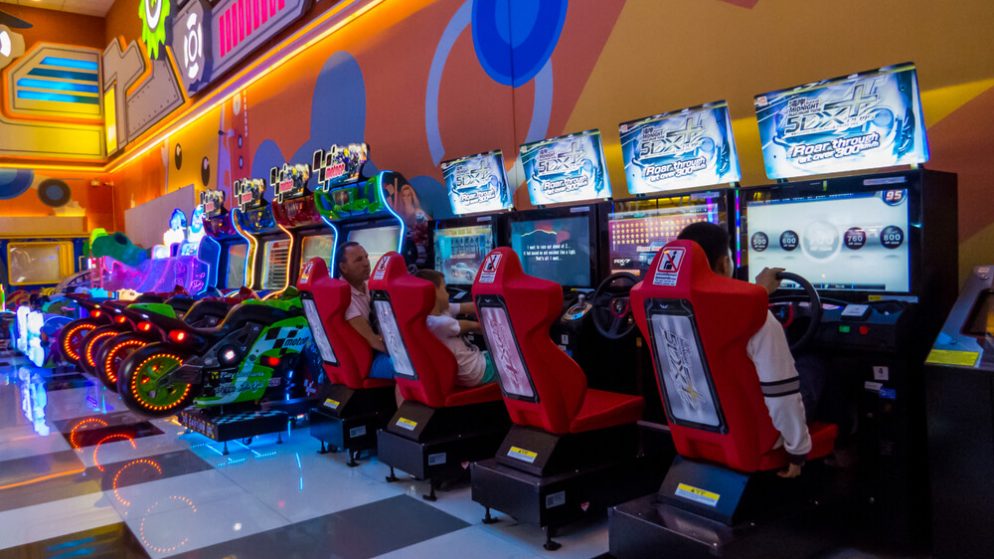

Video gaming terminals (VGTs) have always been a big part of Illinois’ gambling landscape. The introduction of VGTs not only transformed the landscape of entertainment in the state but also significantly impacted the local economy. Today, the state generates the most tax dollars from video gambling terminals.
However, the rapid expansion of these machines has also brought challenges primarily for small businesses that house these slot-like machines. The concept of gaming terminals, which are electronic machines designed for playing an array of casino games, has always been around. However, when these machines were integrated into everyday spaces like bars and restaurants, it marked a paradigm shift in leisure and gambling.
At the height of their popularity, VGTs represented the essence of technological advancement. These terminals can host an array of games, from classic slots to interactive poker, catering to diverse tastes. With stunning graphics and immersive gameplay, they provide an unparalleled gaming experience, all within the cozy ambiance of local hangouts.
In 2009, Illinois became one of the pioneers in the United States to legalize these terminals. Before legalization, these terminals were largely regarded as ‘grey machines’ in the state. That’s because the law neither forbade nor outrightly authorized their operations until 2009. But thanks to the Video Gaming Act of 2009, these machines started receiving the same treatment as legal sports betting.
These machines were given a regulated and taxed framework for their operations, which is what has allowed the industry to grow as prosperous as it is today. At their debut, the state envisioned them as a source of extra revenue and amusement for both businesses and patrons. Once relegated to brick-and-mortar casinos, the legalization of VGTs opened a new source of revenue for local businesses.
Bars, restaurants, and truck stops could now host these terminals, attracting a diverse clientele seeking entertainment alongside their favorite drinks or meals. Interested operators are required to obtain and maintain a license from the Illinois Gaming Board, which also restricts which providers the operators of the game can collaborate with, of which there are 5 at the moment.
This move was supposed to breathe new life into local establishments, offering them a chance to thrive in the gambling ecosystem. Plus, the revenue generated from these terminals was supposed to be a necessary source of income for the state, funding critical services and initiatives. Since July 2020, the state has been levying a tax of 34% on aggregate revenue for VGTs.
The 34% is what is left over after operators have paid out player’s winnings. Illinois gambling law always requires that operators split any revenue left over after paying expenses and taxes equally with providers. With more than 45,000 VGTs distributed across 8200 locations, these machines reportedly generated $31 billion in bets last year.
That produced close to $1 billion in tax revenue for the state. What’s even more promising is that the VGT numbers in 2023 are showing even more promise. For the first 6 months of 2023, VGTs in Illinois had already produced more than $1.45 billion in net income. This means that more than $493 million of tax dollars has already been generated for the state this year.
What we cover
So how have CGTs affected businesses in Illinois?
That largely depends on which businesses you are assessing. For some businesses that operate these terminals, they have been a much-needed additional revenue stream. However, for others, returns have been disappointing, to say the least. As such, an intriguing paradox has emerged.
Despite the apparent success of VGTs, why are so many businesses hosting these machines struggling to reap substantial benefits? One of the main factors contributing to this conundrum is the regulatory environment in Illinois. Not too long ago, the state changed the rules on how many terminals can be in a business.
The state also amended the rules on the types of businesses that could offer these terminals with massive truck stops now being permitted to have 1o VGT devices. This considerable increase in the number of VGT machines to 10 in truck stops has flooded the market and spread the revenue thin. The limited demand amid the massive terminal growth has diverted revenue from one business to another.
As the state has continued to expand the issuance of VGT licenses, it has created cannibalization in the marketplace. In such a situation, Illinois’ oversaturated VGT market has begun to erode its own profitability, which has hit the smallest business owners the hardest. Locations such as Antioch, Crystal Lake, East Dundee, Elburn, Long Grove, and Third Lake have witnessed massive drops in revenue, with some areas experiencing up to a 30% drop per machine, even though the number of machines has remained constant.
For many business owners, this situation has become a pressing dilemma. While the potential revenue from VGTs is no doubt appealing, the running costs, including electricity, licensing fees, and the space these machines occupy, have become burdensome. The choice facing entrepreneurs is, therefore, stark.
Businesses hosting these VGTs have to adapt to the current landscape or abandon VGTs altogether. The state has already made it clear that it will not alter regulations in favor of small business owners. That’s because as mentioned earlier, the state has been enjoying the extreme success of VGTs. In the future, business owners will have to make a tough choice to either deal with continued losses or cut their losses and get out of the saturated market.
Final Thoughts
In the evolving world of Illinois’ gaming industry, small businesses find themselves at a crossroads. As the state revels in the financial influx from VGTs, the very businesses fostering this success are grappling with tough decisions.
As we explore the history and significance of Video Gaming Terminals in Illinois, we also peek into the future. How will these terminals continue to evolve? What new technological marvels await avid gamers? The road ahead is uncertain, marked by tough choices and strategic decisions that will shape the fate of Illinois’ small businesses in the Video Gaming Terminals sector in general.

